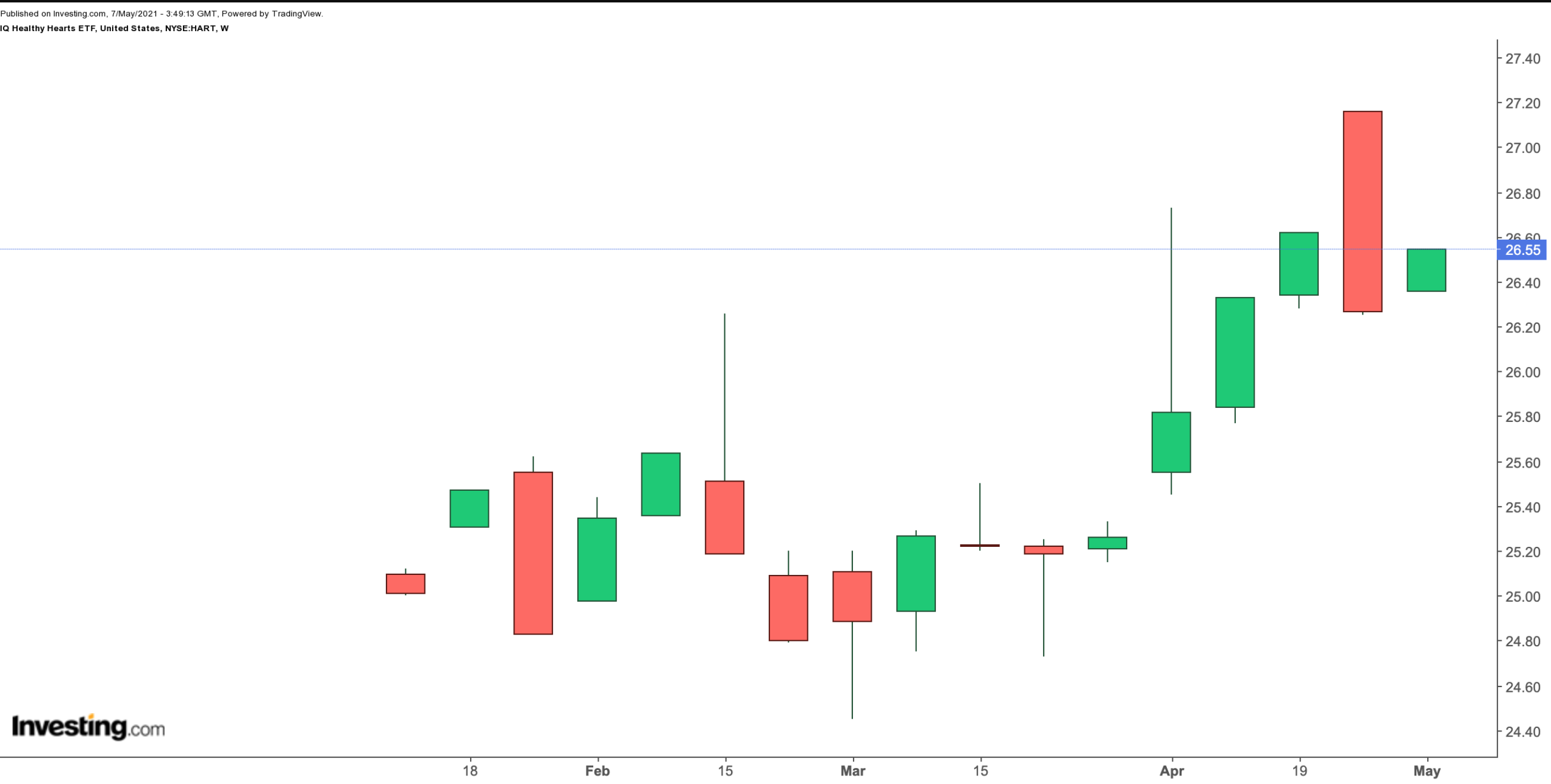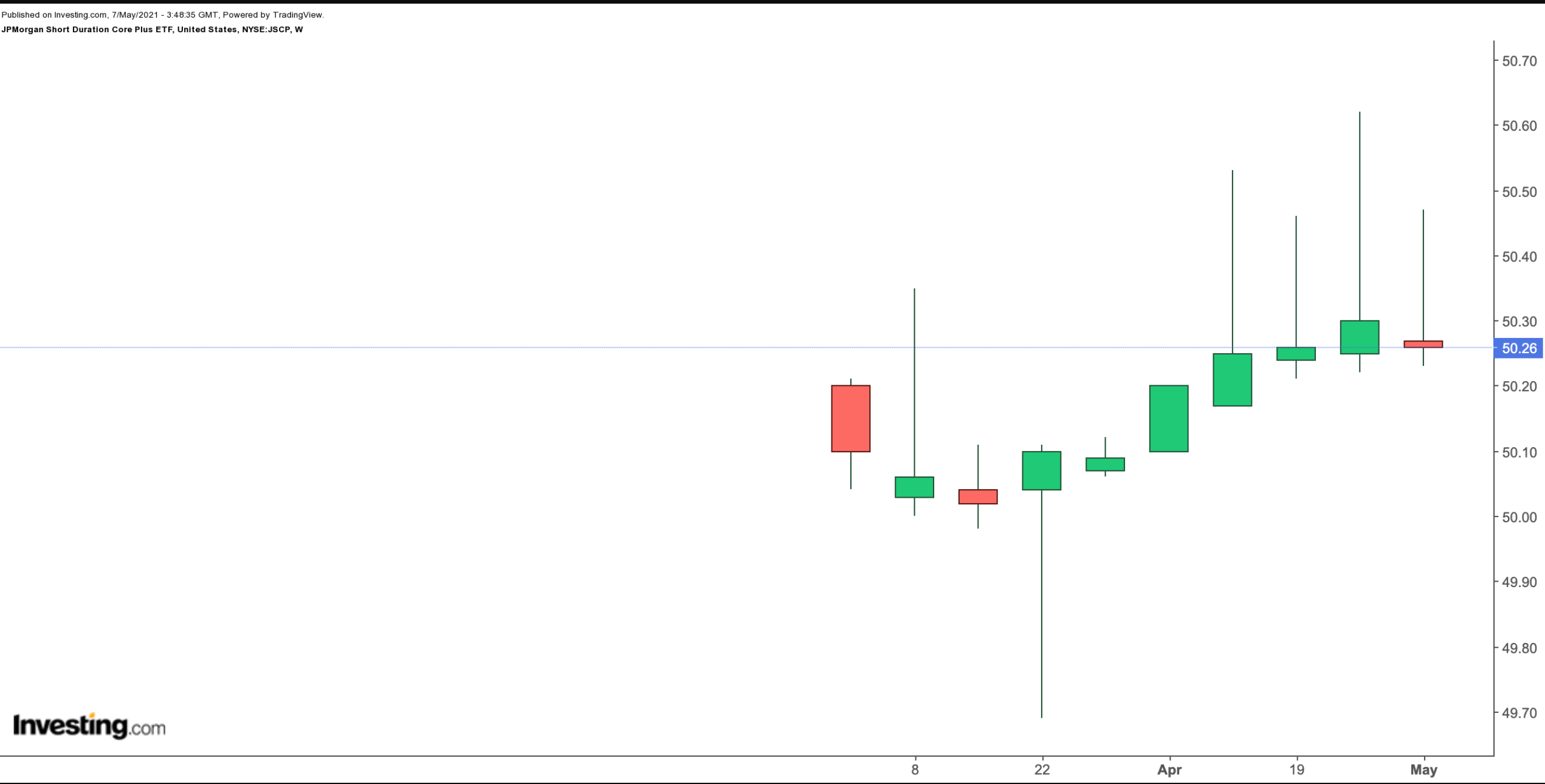The first US-listed exchange-traded fund (ETF) was the SPDR® S&P 500 (NYSE:SPY), which launched in 1993. Fast forward to about a decade ago, and there were about 1,000 ETFs trading in the US. By 2020, there were more than 2,200. Most analysts would concur that the ETF story has been one of innovation and rapid growth.
This quarter has seen the Dow Jones Industrial Average, the S&P 500 Index and the NASDAQ 100 index reach new highs. So far in the year, ETF inflows have also stayed strong. In Q1, close to $349 billion entered the global fund industry.
Meanwhile, ETF sponsors have been launching new funds, especially those with a thematic focus. Bloomberg reports that the early weeks of 2021 have seen around 100 new ETFs join the market. Today, we focus on two of these funds.
Many established as well as new funds have seen high returns in the past year. Recent research led by Itzhak Ben-David of the National Bureau of Economic Research (NBER) highlights the importance of ETFs for retail portfolios, but also warns investors about the potential performance of new specialized funds.
The authors suggest:
“Newly-launched specialized ETFs hold portfolios of securities in attention-grabbing segments of the market: These are stocks that experienced recent price run-ups, had recent media exposure (especially positive exposure), have more positive earnings surprises, and in general display traits that were previously shown to indicate overvaluation (high market-to-book and high short interest).”
Therefore, interested investors should do proper due diligence before committing capital into an ETF or any asset class. Against that backdrop, here are our two funds for today.
1. IQ Healthy Hearts ETF
Current Price: $26.55
52-Week Range: $24.45 - $27.16
Dividend Yield: 1.3%
Expense Ratio: 0.45% per year
The IQ Healthy Hearts ETF (NYSE:HART) provides access to global businesses that are either working on treatments against cardiovascular disease or helping individuals adopt healthier lifestyles. The fund started trading in mid-January and net assets stand at $6.5 million.

HART, which has 76 holdings, tracks the returns of the IQ Candriam Healthy Hearts Index. In terms of sectoral breakdown, health care has the highest slice with 63.94%, followed by consumer discretionary (14.57%) and consumer staples (9.62%).
The top 10 names comprise almost half of the fund. Managed health care and insurance giant UnitedHealth (NYSE:UNH); Google’s Alphabet (NASDAQ:GOOG) (NASDAQ:GOOGL); Swiss nutrition, health and wellness group Nestle (OTC:NSRGY), medical technology group Medtronic (NYSE:MDT), which has a significant cardiovascular focus; and pharma giant Merck (NYSE:MRK) lead the names in the roster.
According to the US Centers for Disease Control and Prevention:
“Heart disease is the leading cause of death for men, women, and people of most racial and ethnic groups in the United States. One person dies every 36 seconds in the United States from cardiovascular disease.”
The metrics from the World Health Organization also show the importance of the illness for the global population as “Cardiovascular diseases (CVDs) are the No. 1 cause of death globally, taking an estimated 17.9 million lives each year."
Since its inception earlier in the year, HART is up about 5%. We like the theme and global nature of the fund. Long-term investors could consider buying the dips.
2. JPMorgan Short Duration Core Plus ETF
Current Price: $50.26
52-Week Range: $49.69 - $50.62
Dividend Yield: 1.3%
Expense Ratio: 0.33% per year
The JPMorgan Short Duration Core Plus ETF (NYSE:JSCP) gives exposure to investment grade and non-investment grade short-term fixed income securities with a duration of three years or less. Fund managers aim to generate total return while preserving capital by investing in short-term bonds from issuers globally. This actively managed fund started trading in early March, and net assets stand at $72.7 million.

An actively managed ETF invests in financial assets selected by the fund manager rather than passively following a benchmark index.
The other important concept is duration, a measure of the sensitivity of bond prices to interest rate movements. For instance, if a bond has a duration of three years, its price would decline about 3% when interest rates increase one percentage point. But the bond's price would increase about 3% when interest rates decline by one percentage point.
Put another way, a high duration means a small change in interest rates could have a large effect on the value of the bond. Therefore, investors would need to pay attention to the duration of a given ETF. JSCP’s current duration is 2.22 years.
The fund has more than 420 holdings, most of which are investment-grade fixed income securities. For instance, more than 33% of them have AAA rating, followed by AA (7.5%), A (24.9%), and BBB (15.9%).
JSCP opened on March 2 at a price of $50.20. So far, the fund is flat. Those investors who are interested in parking some of their capital in investment grade bonds could consider the fund.
